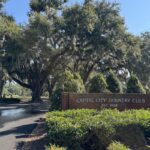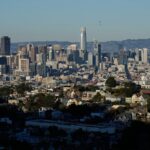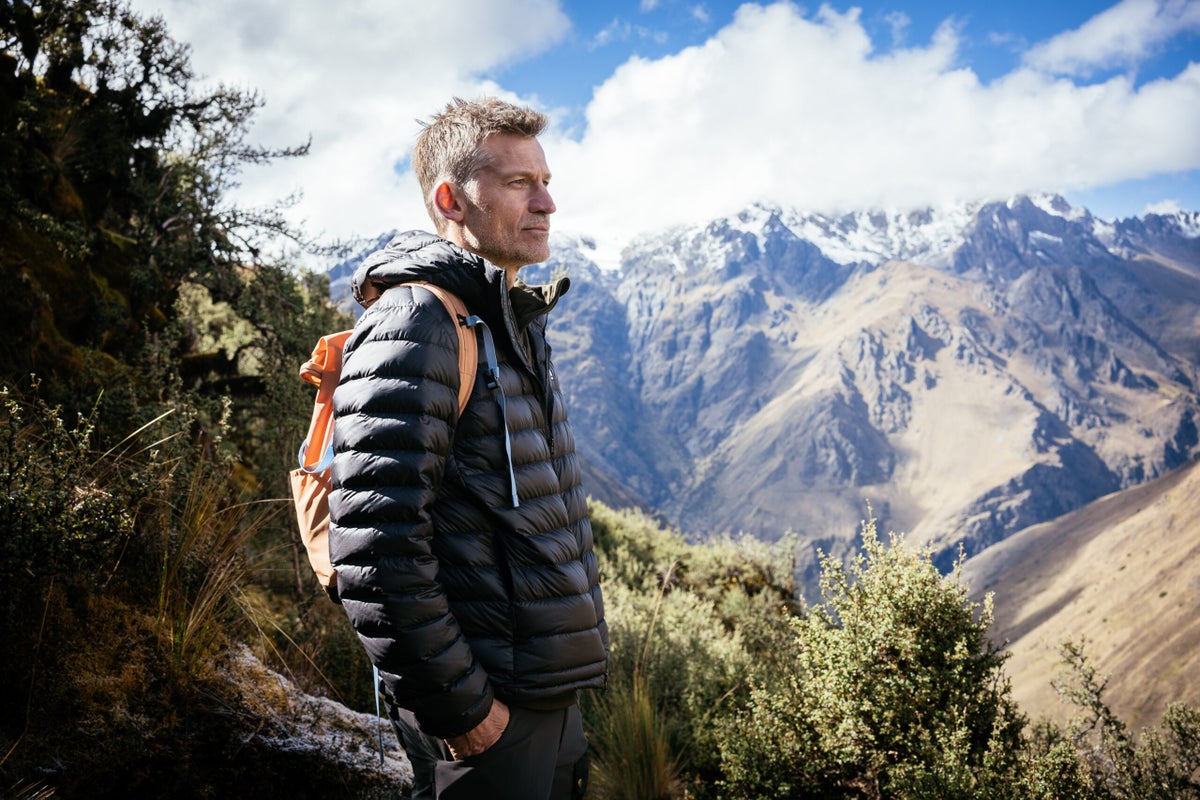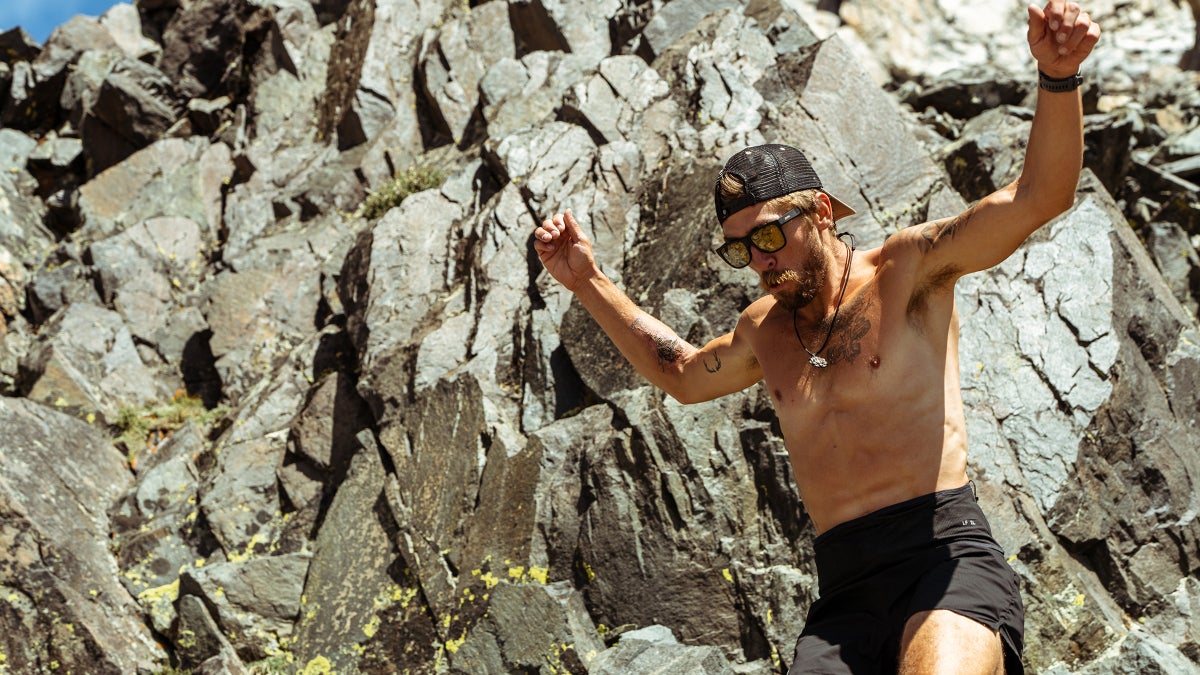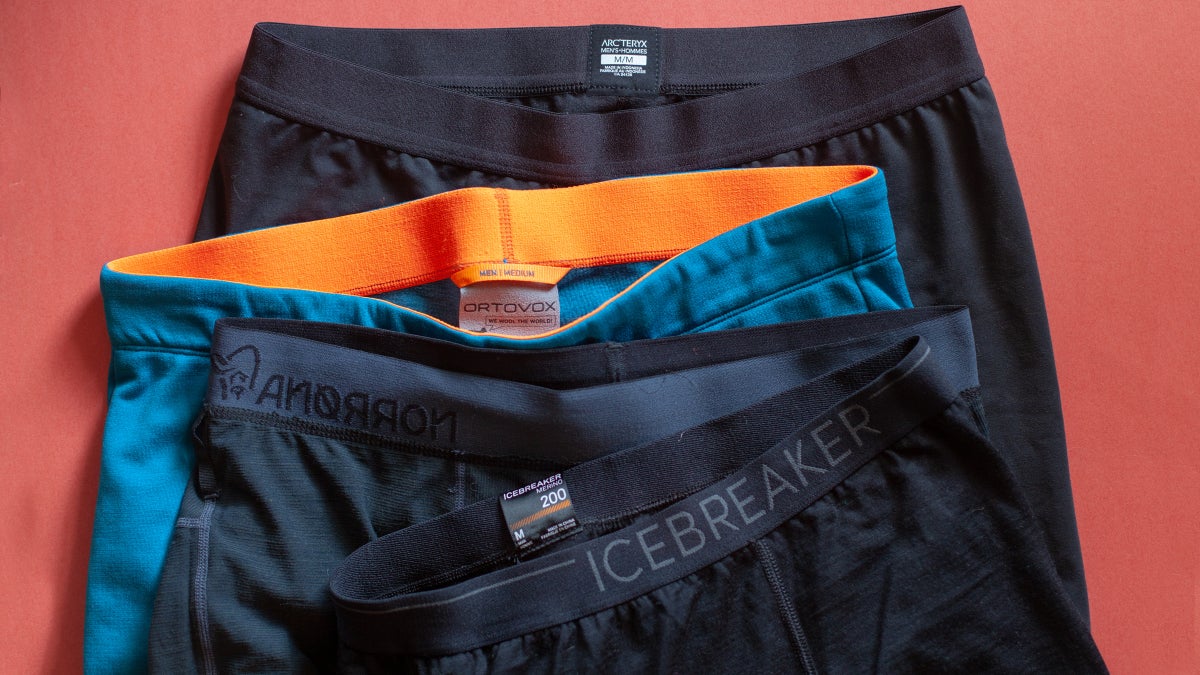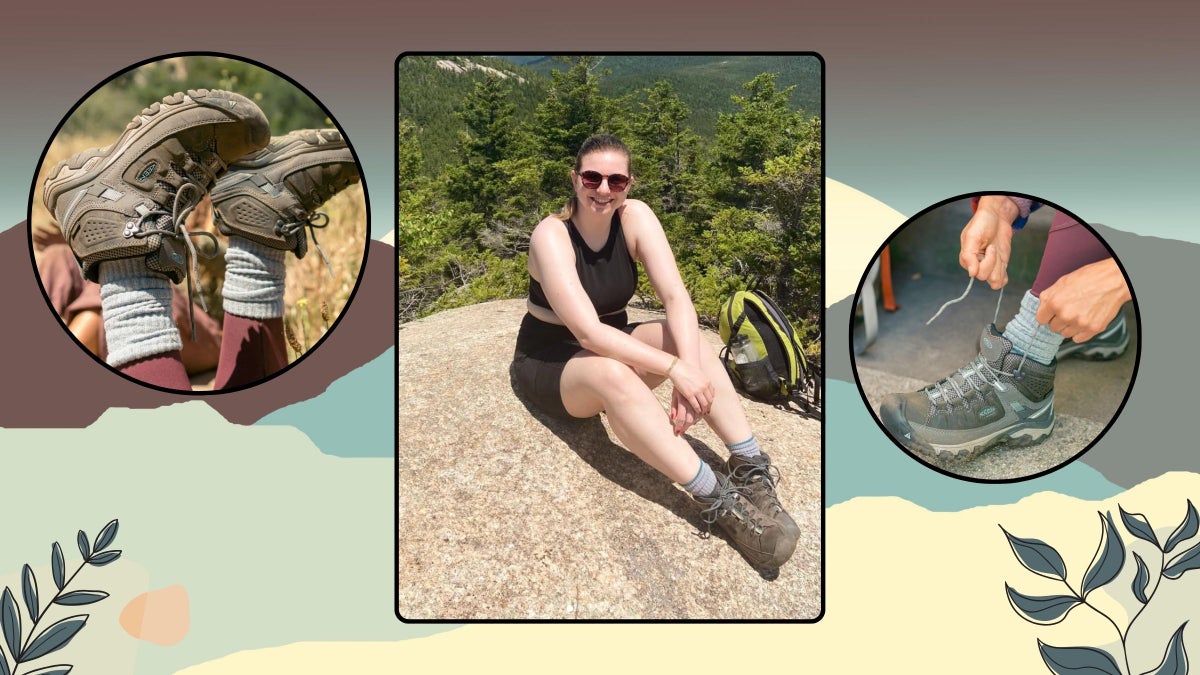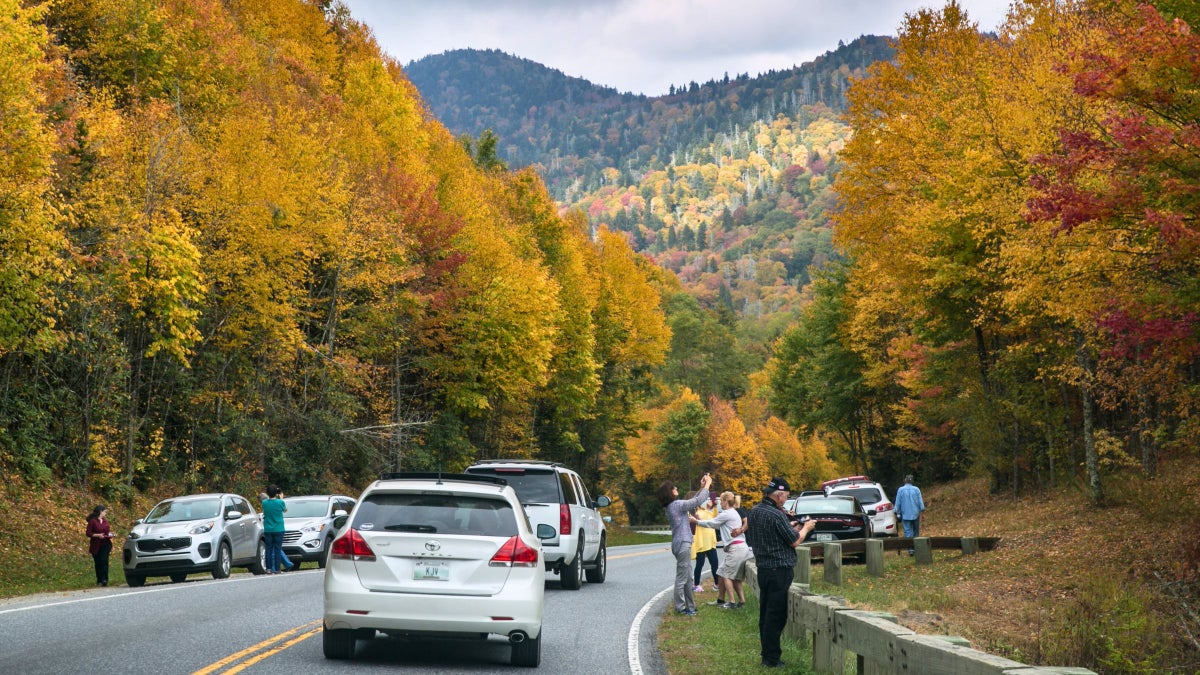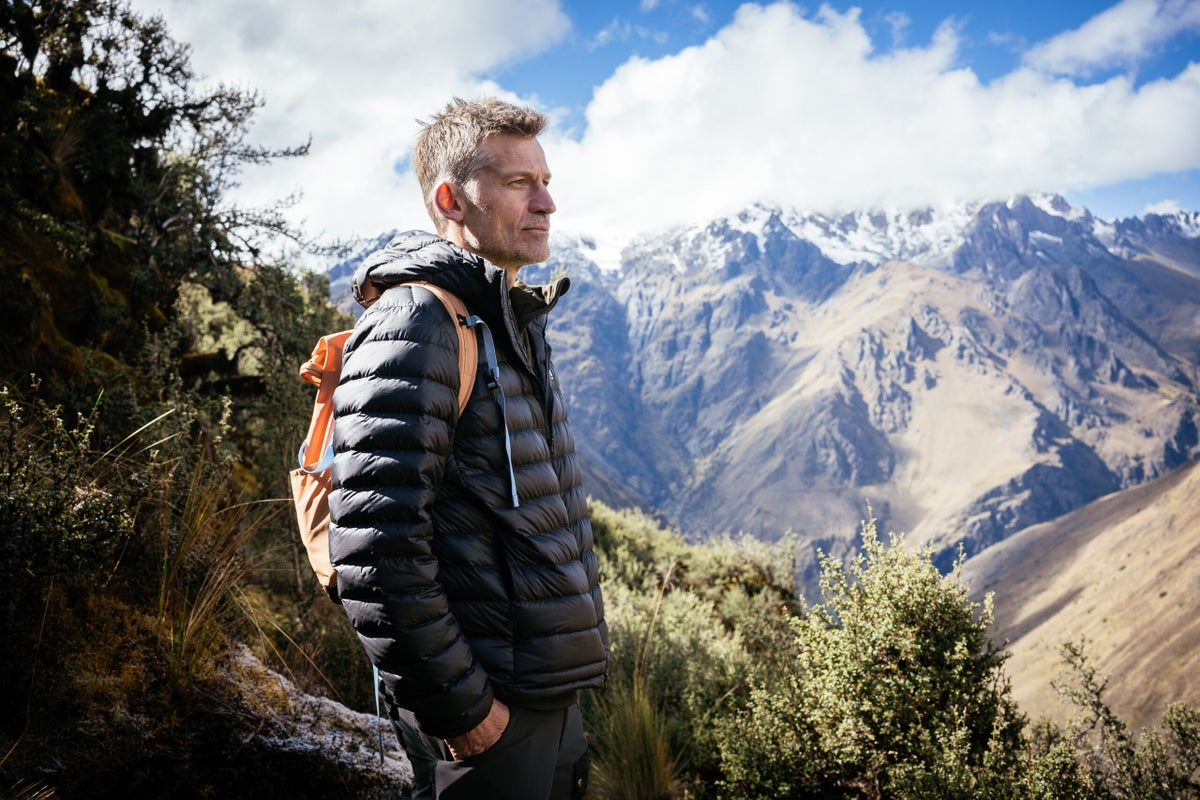
While he played a tormented hero for eight seasons in Game of Thrones, Nikolaj Coster-Waldau is feeling more hopeful about the present world he’s living in. The Emmy-nominated Danish actor is on a quest to uncover the real-life heroic efforts of those keeping our planet thriving in his docuseries An Optimist’s Guide to the Planet. The Bloomberg Original TV series’ first season aired in 2024, and the second six-part season premieres on October 22, 2025.
Coster-Waldau is optimistic about humanity, in part due to the resilient people he’s met as a UN Goodwill Ambassador since 2016. It doesn’t hurt that he’s from the second–happiest country in the world, and one of the greenest countries too, a nation known for its “realistic optimists” who are taught to reframe negative situations into positive outcomes. Long before they were known for pioneering the world’s first wind energy islands, skiable powerplant (you’ll see the Coster-Waldau ski Copenhill in the show) and their cycling culture, Denmark was a society built on agriculture and fishing. It’s this ingrained reverence and tie to the land and water around them that keep Danes like Coster-Waldau advocating for a greener way of life.
An Optimist’s Guide to the Planet follows Coster-Waldau as he criss-crosses the globe, meeting individuals and communities who are working towards a more sustainable future. This season, Coster-Waldau travels to the top of Andean mountains and deep into the Ecuadorian rainforest, where he meets people creating extraordinary innovations from transforming trash into green energy, to harvesting drinking water out of thin air. Nature-based solutions—like a company in Chicago training fungi to break down building waste—take the spotlight.
Outside talks to Coster-Waldau about what drew him to trade battling dragons in Games of Thrones to fighting for a brighter future, where he wants to film next, and his love for getting outside—even if it’s just a bike ride in New Jersey.
OUTSIDE: After your Game of Thrones stardom, what inspired you to do a docuseries like this one?
Nikolaj Coster-Waldau: In 2018, I filmed a little travel documentary called Through Greenland, which was incredible. And since 2016, I’ve been a Goodwill Ambassador for the UNDP (United Nations Development Programme). I’d gone on these journeys around the world to visit projects. And I was always so inspired. I always left with being so impressed by what people can do when they put their mind to it. Even in very difficult circumstances, there was always this feeling of optimism, of belief in being able to better our world.
When this [show] came up, it started as something completely different. I said I want to make it about humans’ impact on our planet. That was the beginning. But I wanted to make sure it’s about humans. At the end of the day, this is a show that celebrates human innovation and curiosity. Hopefully, when you watch the show, you’ll be inspired by these people like I am.
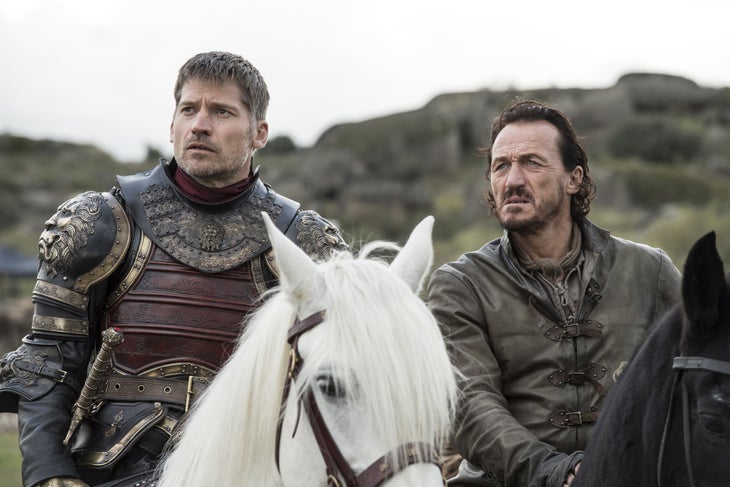
Was the show always going to be an ‘optimist’s guide’? I know people can be turned off by climate stories, and not feel very very hopeful about it all.
NCW: It has to be personal. With any storytelling you have to make it personal. It has to be about someone’s journey, and that’s what we wanted to do.
There was this documentary called ‘Anthropocene,’ which was the initial inspiration for this. It’s [filmed] all over the world, showing the physical impact that humans have had on our planet. It’s incredibly beautiful, but there are no humans in it, so it just becomes this incredible, depressing thing—my god, we have really changed the world.
For me, it always has to be about solutions. It’s about people who have great ideas. But what carries the story is always the human experience. In this season, in the first episode, we go to India, and there’s a story about how sometimes the solutions were already there, but we messed it up.
In India, they’ve had a huge population growth, and they’ve cut down these mangrove trees and forests, which has now turned out to be a huge mistake because the mangroves were protecting the coastal areas. We meet this guy in this community who has had to relocate because their homes have been destroyed by extreme storms. He says it himself, “If only… Why did we cut down the mangroves?”
It’s very sad, but it becomes very easy to identify with because we all know this thing with humans—we get so excited about new ideas and things, but we don’t always think of the consequences. Then suddenly we end up, after the fact, having to rectify that… It’s about regrowing, replanting mangrove forests. It’s going to take a lot of time, and you’re not going to get to the coastal areas that you’ve lost, but you can make sure you don’t lose more.
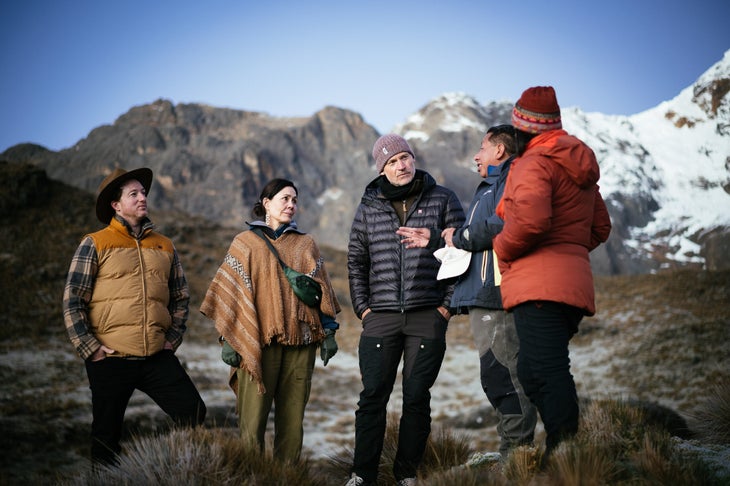
It’s a moving story because it becomes personal. Otherwise, it’s just a story about planting trees. But if you have someone who’s actually affected, it hits home in a different way, and that’s what we try to do with all the stories. You meet people who have impacted their community; and that [makes us] want to impact our own lives.
The Denmark episode shows you and your family in your summer home on the small island of Orø. When I think of Denmark, I think of a country that always seems to get it right. But you show that even a country that’s considered one of the “greenest” in the world can get it wrong.
NCW: We all make mistakes. As humans, we’re flawed, right? There’s the idea that there’s one thing that’s going to solve for all, and one place that has everything figured out, but there’s no such thing as perfect. But we can always try to make it better.
What was interesting with the story in Denmark, with the [dead zone] waters, was that it was something that we’d known about for a long time. We heard the newsflash that there’s a lack of oxygen in the inner waters, but it wasn’t until this photojournalist spent a whole year documenting this phenomenon that it became a big story.
[Photojournalist Asger Ladefoged] talks about how he used to cover war zones, but he never got the same kind of traction when this story hit and all these pictures were published, where you see the desert-like sea floor. Danes were really shocked because it just didn’t fit. You can imagine we pride ourselves on finding a good balance. And clearly, here it was completely out of whack.
I grew up in the countryside, so I always find it very tricky. It’s easy to pick on farmers. This was, no question, caused by too much fertilizer being washed into the inner waters and then too much nutrition in the waters. But the farmers were just following the rules.
There was this huge outcry from everyone. It became a completely bipartisan situation, which included the farmers, the fishermen. Everyone said, what can we do? We have to find a solution, and it has to be something that is not just as long as this particular government is in office. It has to be something for the future. And they did. They managed to come up with this very ambitious plan of taking 15 percent of our land, farmland, and converting it into forest.
I think they want to plant one billion trees over the next ten years. It shows that, especially when you live in a democracy, it’s easy to sometimes be disillusioned and lose hope and faith, but actually, we are in control.
Whether it’s a documentary or it’s fiction, it has to be specific, it has to be personal. When you talk to someone, they tell a story about something wonderful they experienced, or something horrific. It means a lot more, because you can live through them, as opposed to someone saying, ‘Well, you know, in 100 years this is going to happen… or in some other place that’s going to happen. ‘
[This season] you can see that we have the same challenges, whether you live in the U.S. or in India. The circumstances are very different, but trying to find solutions is the same. The solution that works in Finland is not going to work here, but maybe we can inspire each other.
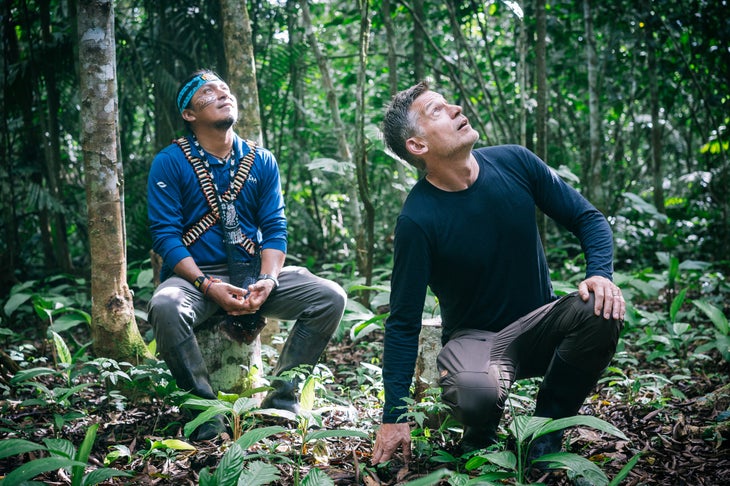
What do you hope that viewers see in this season of An Optimist’s Guide to the Planet?
NCW: We go to very different cultures, very different parts of the world. I hope what I experienced, and what hopefully, the viewers will, is ” Oh, wow, we were not different after all.” Wanting the best for your fellow man is something you see everywhere, and that should give you hope, that should give you optimism.
The other thing I hope? Being as I am, just blown away by all these great ideas. One of my favorite ones is Mycocycle in Chicago, where it’s literally just saying, Look at fungi. Look what they do. It can break down stuff that we couldn’t, but it’s been around us always.
We can solve massive problems if we just open our eyes and use that very human curiosity that is such a great tool.
I read that you love cycling. How is being outdoors part of your everyday life?
NCW: I’ve been in New Jersey for the last few months, but I’ve got my mountain bike and I’m trying to get out. Jersey is amazing, by the way. New Yorkers give it such a bad rap. I’ve never been to Jersey before. I love it; it’s very much like home with forests… But yes, I try to get out as much as I can, mountain biking, hiking, or walking. I get antsy if I’m indoors all day. Going for a long walk, you will never regret it.
Is there a place you’d like to film next, or a place you always love visiting?
NCW: There are many places I’d like to see. Patagonia. I’ve never been to Brazil. I really love South America. China, when we talk about innovation and solutions, there areso many things they do out there, which I would love to explore, because the scale is insane.
An Optimist’s Guide to the Planet season two premieres October 22 at 8 P.M. EST on Bloomberg Originals and 10 P.M. EST on Bloomberg TV.
The post ‘Game of Thrones’ Nikolaj Coster-Waldau Is Fighting for a Brighter Future appeared first on Outside Online.



